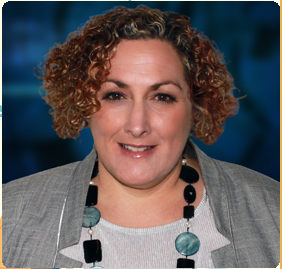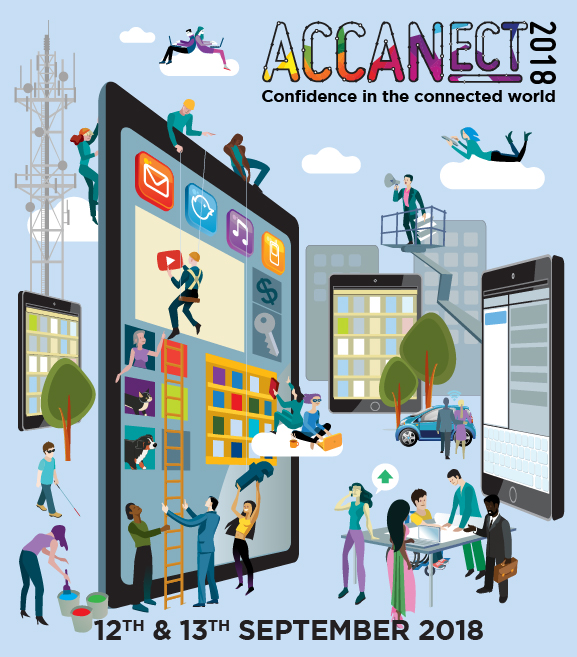Hot Issues
Welcome to the latest current affairs that impact communications consumers.
Sign up for ACCAN's weekly newsletter to have these news items sent to your email address each week.
[ List view | Detailed view ]
- Details
 NBN Co has recently announced changes to wholesale prices charged to retail service providers (RSPs) from October 2018. These changes mean consumers can expect to pay higher prices to access NBN services.
NBN Co has recently announced changes to wholesale prices charged to retail service providers (RSPs) from October 2018. These changes mean consumers can expect to pay higher prices to access NBN services.
At the same time consumers can expect to have an improved experience as congestion in the network is addressed through greater dedication of bandwidth per individual customer.
The proposed changes to wholesale pricing will likely result in significant disadvantages for consumers on low incomes. ACCAN has been advocating for more affordable broadband and would like to see low income measures to address fairer NBN pricing.
Read more: ACCAN’s Analysis of NBN Co’s recently announced Pricing Changes
Write comment (2 Comments)- Details
 Minister for Communications and the Arts Mitch Fifield, in response to an Australian Sign Language video question on the ABC’s Q&A program this week [at 35min 50sec], pledged that Australians who are Deaf, hearing and/or speech impaired will have the service they need when the Government implements the next National Relay Service (NRS) contract.
Minister for Communications and the Arts Mitch Fifield, in response to an Australian Sign Language video question on the ABC’s Q&A program this week [at 35min 50sec], pledged that Australians who are Deaf, hearing and/or speech impaired will have the service they need when the Government implements the next National Relay Service (NRS) contract.
The issue raised by Deaf Australia CEO Kyle Miers, is that the current cost of providing the NRS is in excess of $32 million per annum and the recently released NRS request for tender has capped the service funding at $22 million per annum for the next three year.
The question of how a 30% reduction in funding can ensure services will continue on a 24/7 basis was asked on behalf of the Coalition of NRS Users Organisations;
Read more: Support for the NRS and the Ministers pledge
Write comment (0 Comments)- Details
Background

In March 2018 it was revealed that the data firm, Cambridge Analytica, gained unauthorised access to almost 87 million (primarily United States) Facebook users’ data. Also implicated was Cambridge Analytica’s British counterpart, Strategic Communication Laboratories.
Facebook users’ data was harvested through the two data firms through a personality-quiz app created by Cambridge psychology professor, Aleksandr Kogan, named “This Is Your Digital Life”. Facebook confirmed that only 270,000 Facebook users downloaded Kogan’s app, but Facebook has not yet refuted claims that up to 87 million users’ data had been accessed. During this time, when Facebook users downloaded apps connected to their Facebook accounts, they also exposed data from many of their friends to the app developer, hence, the large estimated number of users affected.
Read more: Cambridge Analytica and Facebook: The Aftermath
Write comment (0 Comments)- Details
 The NSW Law Reform Commission will examine laws regarding access to a deceased or incapacitated person’s social media account and other digital assets. The NSW Law Reform Commission outlines that digital assets can include images, videos, emails, online banking accounts, cryptocurrency, domain names, blogs and online gaming accounts.
The NSW Law Reform Commission will examine laws regarding access to a deceased or incapacitated person’s social media account and other digital assets. The NSW Law Reform Commission outlines that digital assets can include images, videos, emails, online banking accounts, cryptocurrency, domain names, blogs and online gaming accounts.
The move comes after concerns over what happens to digital assets after death or incapacitation in an increasingly connected world.
‘In today’s hyper-connected world, an unprecedented amount of work and socialising occurs online, yet few of us consider what happens to our digital assets once we’re gone or are no longer able to make decisions’, Attorney General, Mark Speakman, said.
Read more: Review of social media and other digital assets after death or incapacitation
Write comment (0 Comments)- Details
 ACCAN CEO, Teresa Corbin, presented at the CommsDay Summit 2018 in Sydney on 9 April. This year's CommsDay Summit brought together telecoms industry leaders and politicians from across the country to discuss topics including the NBN, 5G, fixed and wireless technologies and the market.
ACCAN CEO, Teresa Corbin, presented at the CommsDay Summit 2018 in Sydney on 9 April. This year's CommsDay Summit brought together telecoms industry leaders and politicians from across the country to discuss topics including the NBN, 5G, fixed and wireless technologies and the market.
The speakers included Minister for Communications and the Arts, Senator the Hon Mitch Fifield, Telstra CEO, Andy Penn, as well as representatives from NBN, Huawei, Vodafone, ACMA and other telecommunications providers.
Teresa's presentation focused on four of ACCAN's key priorities for consumers in 2018:
• NBN & Consumers
• Consumer Protection
• Rural & Regional Issues
• Latest Affordability Stats
Read more: ACCAN presentation at Commsday 2018
Write comment (0 Comments)- Details
 In 2018, technology and digital services are all around us. Consumers use the internet and telecommunications services to stay connected, go shopping, link into education and job opportunities and access government services.
In 2018, technology and digital services are all around us. Consumers use the internet and telecommunications services to stay connected, go shopping, link into education and job opportunities and access government services.
While we increasingly live our lives online, it’s vital that we don’t leave anyone behind. What gaps will appear in the connected world? Who will and won’t be able to access services due to limitations on connectivity? What can we do to ensure that people are not only connected but they also have the confidence to use new technologies to their benefit?
We will explore these questions and more at the 2018 ACCANect Conference which has the theme: ‘Confidence in the Connected World.’
Read more: Confidence in the connected world: ACCANect 2018
Write comment (0 Comments)- Details
 The Australian Competition & Consumer Commission (ACCC) released its first results from its Measuring Broadband Australia speed monitoring program and the results are generally positive, with NBN broadband services from iiNet, Optus, Telstra and TPG delivering between 80 per cent and just over 90 per cent of maximum plan speeds during peak times (7-11pm). On download speeds, out of the four, TPG beat the other three with 90.7 per cent, followed by iiNet with 88.6 per cent, then Telstra with 88.1 per cent, and Optus with 90.7 per cent. The service providers are also achieving positive upload speeds.
The Australian Competition & Consumer Commission (ACCC) released its first results from its Measuring Broadband Australia speed monitoring program and the results are generally positive, with NBN broadband services from iiNet, Optus, Telstra and TPG delivering between 80 per cent and just over 90 per cent of maximum plan speeds during peak times (7-11pm). On download speeds, out of the four, TPG beat the other three with 90.7 per cent, followed by iiNet with 88.6 per cent, then Telstra with 88.1 per cent, and Optus with 90.7 per cent. The service providers are also achieving positive upload speeds.
Read more: ACCC’s first NBN speed test results
Write comment (1 Comment)- Details
 Telstra admitted that over 100,000 of its customers were misled over third party charges by its Premium Billing service.
Telstra admitted that over 100,000 of its customers were misled over third party charges by its Premium Billing service.
Yesterday, the Australian Competition & Consumer Commission (ACCC) launched proceedings against the telco giant, alleging that Telstra made false or misleading representations to consumers regarding its third party billing services.
Read more: Telstra misled its customers over third party charges
Write comment (2 Comments)- Details
 The Consumer Policy Research Centre (CPRC) is an independent, consumer-focused policy think-tank.
The Consumer Policy Research Centre (CPRC) is an independent, consumer-focused policy think-tank.
In December 2016, the Victorian Government established CPRC as a generalist policy research centre by expanding the remit of what was then the Consumer Utilities Advocacy Centre (CUAC).
CPRC undertakes evidence-based research to inform policy reform and business practice changes that improve consumer outcomes. The organisation conducts policy research internally, as well as in partnership with other research organisations. It also promotes, translates and supports the consumer research work of others.
Read more: Advancing fair outcomes for all consumers
Write comment (2 Comments)- Details
 The National Relay Service, audio description services and accessible ICT procurement were among the issues on the agenda at ACCAN’s 2018 Disability Advisory Forum on Wednesday 7 March in Sydney.
The National Relay Service, audio description services and accessible ICT procurement were among the issues on the agenda at ACCAN’s 2018 Disability Advisory Forum on Wednesday 7 March in Sydney.
Held yearly, the Disability Advisory Forum brings together groups representing people with disability to discuss telecommunications issues and accessibility and advises ACCAN on its policy priorities for the upcoming year.
Read more: Accessibility issues in 2018
Write comment (0 Comments)- Details
 In our 2018-19 Pre-Budget submission, we took the opportunity to highlight telecommunication areas that could benefit from more funding in the Federal Budget.
In our 2018-19 Pre-Budget submission, we took the opportunity to highlight telecommunication areas that could benefit from more funding in the Federal Budget.
Our recommendations span a range of issues, from mobile coverage to affordability and accessibility. Many of these are not new recommendations, but they are ones that are important to consumers and worth highlighting once again.
Read more: Calling for telecommunications funding in the Federal Budget
Write comment (0 Comments)- Details
 ACCAN has welcomed Telstra’s announcement that it will no longer charge its customers for having a Silent Line from 18 February, 2018.
ACCAN has welcomed Telstra’s announcement that it will no longer charge its customers for having a Silent Line from 18 February, 2018.
Having a Silent Line means that your number is not listed in a public directory or displayed on the recipient’s handset when you make a call. Previously, Telstra customers had to pay $2.93 per month for this service.
Read more: Telstra has scrapped Silent Line fees
Write comment (3 Comments)